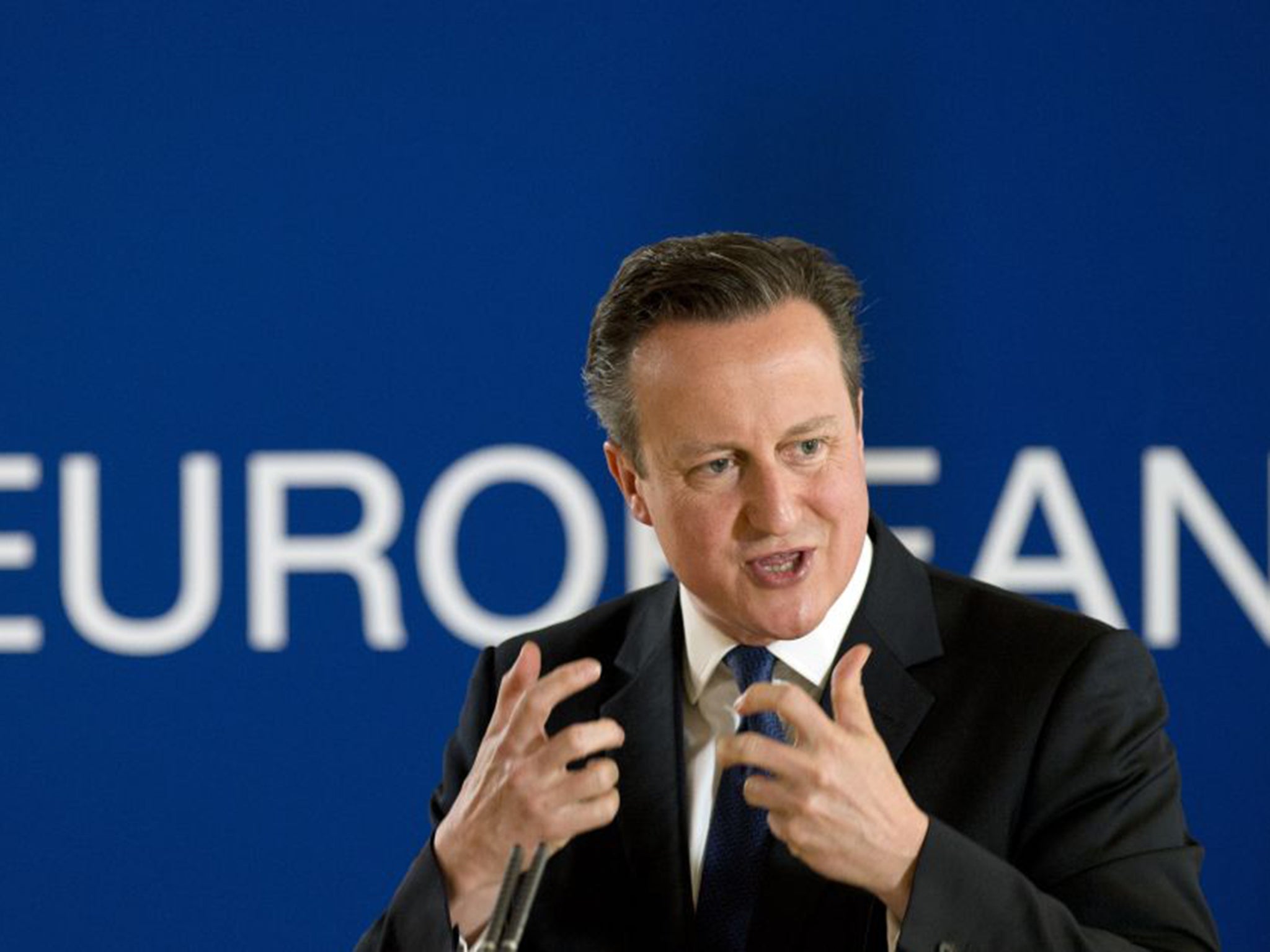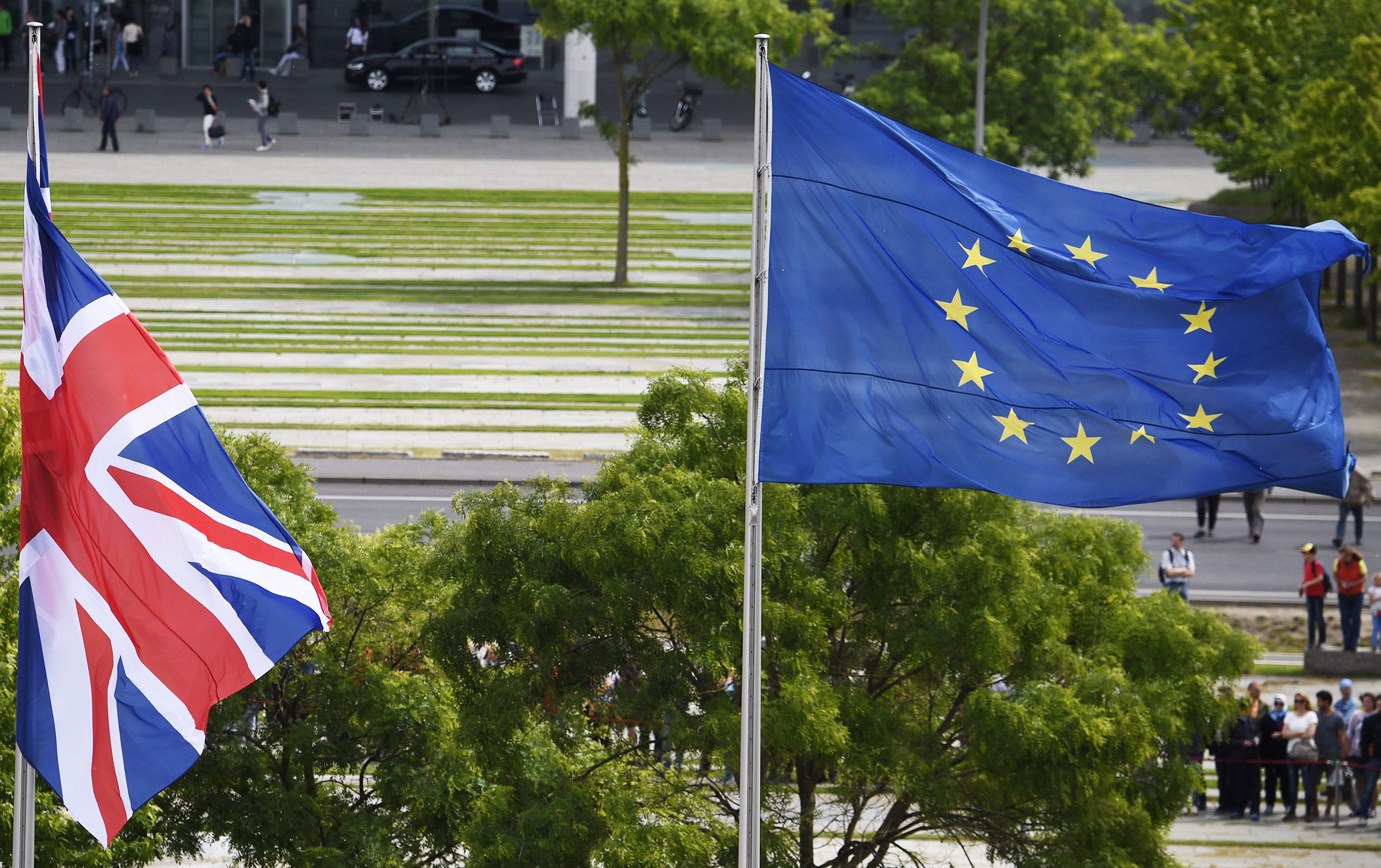EU referendum 'within a year': David Cameron fast-tracks vote on Britain's membership of European Union to June 2016
PM pins his hopes for reforms on other union nations’ fears of British exit

Your support helps us to tell the story
From reproductive rights to climate change to Big Tech, The Independent is on the ground when the story is developing. Whether it's investigating the financials of Elon Musk's pro-Trump PAC or producing our latest documentary, 'The A Word', which shines a light on the American women fighting for reproductive rights, we know how important it is to parse out the facts from the messaging.
At such a critical moment in US history, we need reporters on the ground. Your donation allows us to keep sending journalists to speak to both sides of the story.
The Independent is trusted by Americans across the entire political spectrum. And unlike many other quality news outlets, we choose not to lock Americans out of our reporting and analysis with paywalls. We believe quality journalism should be available to everyone, paid for by those who can afford it.
Your support makes all the difference.David Cameron is set to hold the in-or-out referendum on Britain’s future membership of the European Union in June next year and will announce the fast-tracked date as the centrepiece of his party’s annual conference in October.
Although the Queen’s Speech in May promised the British electorate would be given its first chance since 1975 to have a say on EU membership, the Government did not name a date for the vote, only that it would be held before the end of 2017. Chancellor George Osborne was believed to be keen for the referendum to be held later rather than sooner to maximise chances of securing the best possible deal for Britain, but the Prime Minister has now calculated that a 2016 vote will give him a better chance of promoting what may end up being a limited package of EU reforms, and of highlighting the economic risks Britain could face if it left the EU.

The Independent on Sunday has learned that Mr Cameron has decided to pencil in June of next year. The source insisted that the 2016 date, and the parliamentary bill to approve it, would not prove to be a barrier in the House of Lords.
The recent turmoil in Greece, and the concerted efforts by member states to keep Greece in the euro and inside the EU, were also described as being “influential” over Downing Street’s recalculation of the referendum date. The reluctance in Brussels to allow a member state to leave the European project has encouraged government leaders to believe that the reforms they are seeking will be granted. However, the Prime Minister has, according to senior sources, now accepted there is only a limited chance of securing changes to the EU’s governing rules contained in the Lisbon treaty.
Downing Street sources confirm Mr Cameron is now confident that European leaders are embracing the need for change and want Britain to continue playing a leading role in the eurozone. One senior source said: “Polls show that support for remaining inside the EU is the highest it’s been for a quarter of a century. The PM has already made his case to all 27 EU leaders and a vote held next year or the year after will not affect the outcome.”
Advisers have told Mr Cameron that he could copy a so-called unionist “vow” which preceded last year’s Scottish referendum in which voters were promised a package of reforms provided they voted in favour of the union. Using this approach the PM would tell British voters that the EU will make good on reforms and exemptions if there is a vote to remain in the EU.
The Government’s wish list for EU reform includes an opt-out from closer nation-state union inside the EU, changes to the way work benefits apply to EU migrants and an easing of the way Brussels enforces EU legislation on member-state parliaments.
The announcement of the 2016 date is planned to be a high-profile part of Mr Cameron’s keynote speech to the Tory conference in Manchester in October.
There are fears inside Downing Street that if the referendum date is allowed to drift into late 2017, Britain’s bargaining power would suffer. But holding the poll within a year would stop Britain’s demands becoming a divisive political issue in the French presidential and German federal elections, both in 2017.
Mr Osborne may foreshadow the 2016 referendum date today when he kicks off a two-day visit to Paris in the first of a series of tours to European capitals over the next six months. The Chancellor is expected to hold meetings with members of François Hollande’s administration, including his finance counterpart, Michel Sapin and the Foreign Minister, Laurent Fabius.
Mr Osborne is expected to repeat Mr Cameron’s assertion that there is rising public support among EU member states for the reforms Britain has asked for. He will tell French ministers that the UK referendum “is an opportunity to make the case for reform across the EU”.
The Chancellor is also expected to call for a “more competitive and dynamic continent to ensure it delivers prosperity and security for all of the people within it, not just for those in Britain”. As well as meeting leading figures in the Hollande government, Mr Osborne will appear on French media in an effort to, as the Treasury bills it, “take Britain’s case for reform to the French people”.
No 10 said that the vote would be before the end of 2017.
PM in south-east Asia terror talks
David Cameron said today that Isis could extend into South-east Asia, as he embarks on a four-day trip to the region.
Following his speech on counter-extremism last week, the Prime Minister will talk about the threat from an Isis-affiliated group in Malaysia and Indonesia in talks with the leaders of those countries, as well as discussing trade. Mr Cameron will ask President Joko Widodo of Indonesia and Prime Minister Najib Razak of Malaysia what more the UK can do to help to defeat terrorism.
Mr Cameron said: “Britain can offer expertise on practical counter-terrorism work – dealing with the threat from foreign fighters. And Britain can learn from Indonesia and Malaysia on the work they have done to tackle the extremist ideology and to build tolerant and resilient societies.”
Jane Merrick
Join our commenting forum
Join thought-provoking conversations, follow other Independent readers and see their replies
Comments